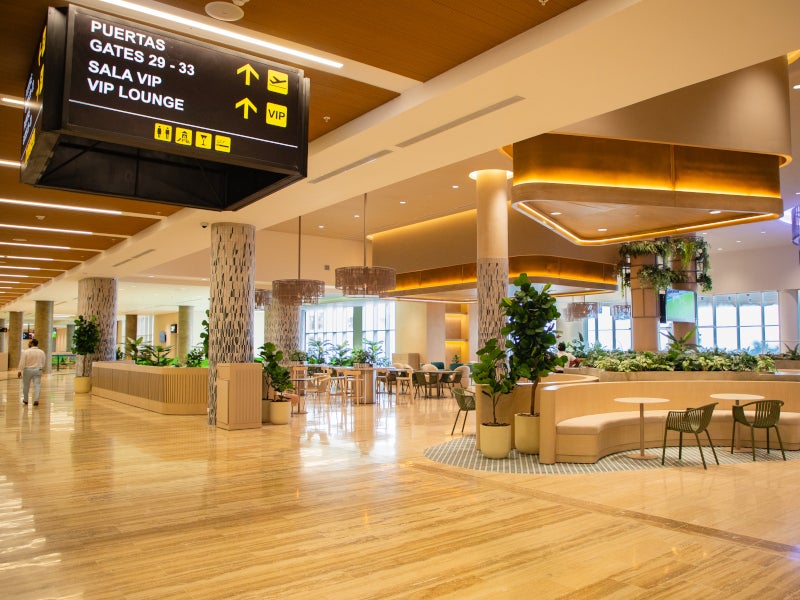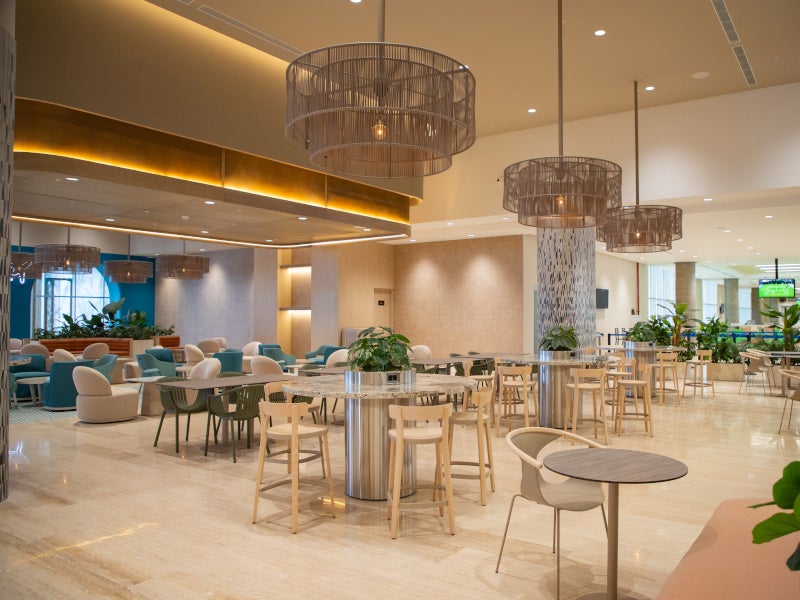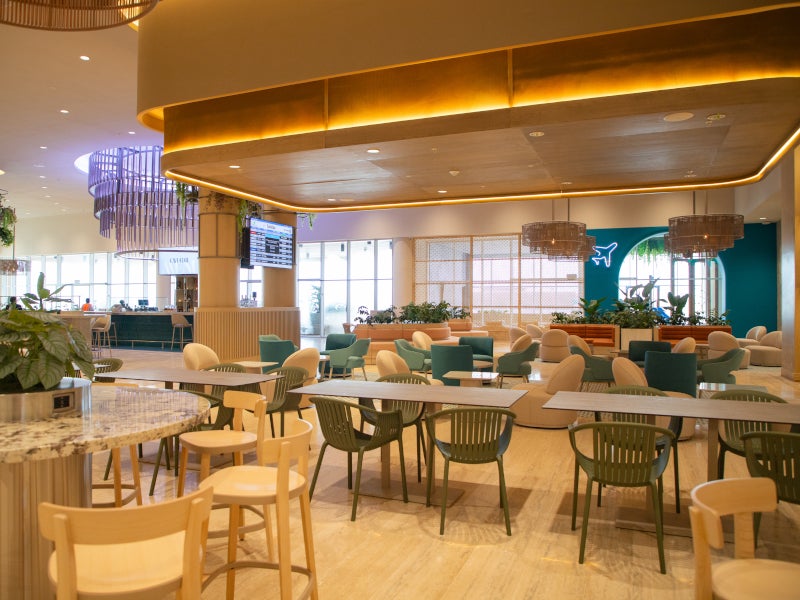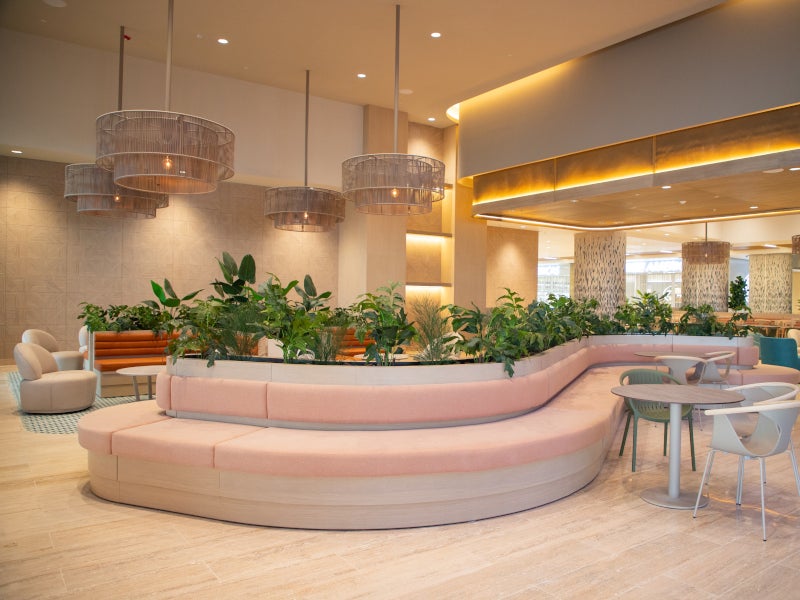Punta Cana International Airport (PUJ) is a privately owned commercial airport located in Punta Cana, eastern coast of the Dominican Republic.
Owned and operated by Grupo Puntacana, a tourism and financial development company, the airport was built in 1984 and has been expanded several times to support passenger growth and enhance services.
Grupo Puntacana began the construction of a new air cargo logistics hub named Punta Cana Free Trade Zone (PCFTZ), including Air, Maritime, Land Logistics Center and Free Trade Zone Park, as well as the expansion of Terminal B in February 2022.
The PCFTZ facility is being constructed through a collaboration between DP World, a logistics company based in UAE and the Punta Cana Free Trade Zone, a Grupo Puntacana company, with an investment of approximately $200m. The facility will accommodate both cargo logistics operations and office spaces for the establishment of the Punta Cana Hub nurturing the innovation and growth of Fintech companies. The operations are expected to begin in late 2023.
With an investment of more than $90m, the expanded Terminal B at the PUJ began operations in July 2023, with flights from North America. Plans are in place to extend the network to include connectivity routes in Latin America and Europe.
The expansion enables the airport to mobilise 5,000 passengers an hour and four million passengers a year.
Punta Cana International Airport Terminal B expansion details
The PUJ Terminal B was expanded on an area of approximately 35,000m2 with seven boarding gates and seven air bridges.
Some of the new technologies implemented at the terminal include smart path biometrics for check-in without agents, self-serve kiosk, mobile biometric technology for fast and secure sign-up or registration, self-dispatch baggage with biometric authentication, simple electronic doors or self-service boarding doubles, access controls to secure areas and automated border checkpoints.
Furthermore, Terminal B has also been equipped with an explosive detection system at the security checkpoint and baggage carousel, new self-check-in kiosks with baggage label printing, new security screens, auto-gates, and kiosks automated border control in the arrival migration area.
The terminal is installed with a Pro:Vision® 2 people scanner, a ProPassage™ fully adjustable automated tray return system and a ClearScan™ automated CT scanner that scans cabin baggage at every checkpoint.
Other Terminal B features
Terminal B is one of the most up-to-date terminals in the region with modern amenities and services such as a modern food truck area offering a wide range of cuisines, Fast Track service and a VIP Lounge with a pool overlooking the runway.
It also features e-gate migration, ten state-of-the-art body scanners, eight tomographic machines and four automated machines, making it one of the most technologically equipped airport terminals in Latin America.
Punta Cana Free Trade Zone (PCFTZ) facility details
The PCFTZ facility will involve an extension of 546,617m2 of land, contributing to the sustained economic growth of the area and generating more than 10,000 jobs.
The Air, Maritime and Land Logistics Center within the PCFTZ is set to streamline cargo operations on 265,518m2 of land with 75,000m2 of infrastructure. The facility will manage the import, export, trans-shipment and parcel of cargo, effectively centralising the cargo processes for passenger planes.
Once completed, the cold room facility will manage a maximum air cargo volume of 430t and accommodate up to five ramp positions for wide-body cargo aircraft. The cargo volumes can reach up to 108t per aircraft, depending on the configuration. State-of-the-art double-vision X-ray machines will be employed for cargo inspection and verification. A container-checking machine will be introduced as cargo volumes expand.
The centre of the logistics park will include the maintenance, repair and overhauling (MRO) area on 115,588m2 of land with 27,000m2 of construction. It will include space to house five positions to perform different maintenance processes on narrow-body aircraft with the planned expansion of the facility to a total of 12 bays afterwards. The creation of the area will generate about 1,600 jobs related to MRO operations.
The presence of the MRO Centre at the airport is critical to ensure the safety and efficiency of air operations in the region.
Furthermore, a Free Zone Park will be developed on 185,312m² of land with approximately 93,820m² of construction. The park aims to stimulate the manufacturing and service industries, fostering the establishment of businesses. The administrative offices of the PCFTZ will house the operations of the General Directorate of Customs (DGA), DP World Caucedo and the Free Trade Zone.
Contractors involved
Leidos, a technology, engineering and science solutions provider, is providing technological solutions to upgrade the security checkpoints at Terminal B.
Grupo Puntacana collaborated with FL Technics, an MRO service provider, to create a new aircraft MRO infrastructure within the PCFTZ and Logistics Park in the airport.
Punta Cana International Airport (PUJ) features
The PUJ is the largest airport in the Caribbean region, with more than 5.9 million international arrivals a year. The most connected airport in the country serves 64 cities and 26 countries globally, mobilising eight million passengers a year.
It includes three terminals (Terminal A, the fixed-base operation (FBO) Terminal, and Terminal B), two runways, 27 boarding gates, 30 aircraft parking spaces and three VIP lounges.
The airport put into operation six automated immigration control kiosks with an investment of more than DOP$22m ($372,764) in October 2020. They are known for offering the Caribbean’s most secure, efficient and rapid immigration registration process for both entry and exit procedures. The system complements the outbound migration gates deployed in the airport in 2018.
The kiosks take five minutes to process a passenger’s entry. The system allows for faster, more secure traveller processing and provides a physical distance between travellers and immigration agents.
The airport features a recycling and incineration centre, which recycles 60% of the waste produced by the airport. It is installed with Leidos’ B220™, a desktop explosive trace detector and the Leidos Mosaic™ enterprise software solution, which integrates the whole security ecosystem and connects with other components of the airport operations.







